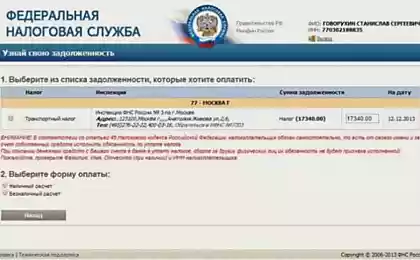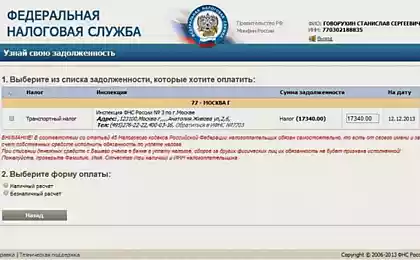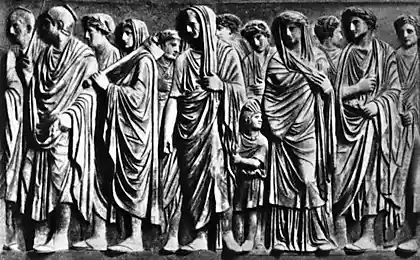648
The most absurd taxes in the world (11 photos)
Did you know that the famous Latin phrase "money does not smell," spoken by the Roman emperor Vespasian, it is directly related to taxes? Or rather - to the tax on a visit public toilets introduced to quickly replenish state coffers after the last civil war. All kinds of taxes imposed sometimes wise and sometimes greedy rulers, had not seen the story. We recall the most vivid examples of absurd taxes around the world, from the Middle Ages to the present day.
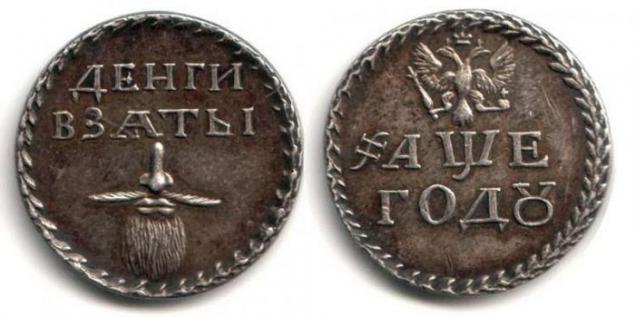
Tax on life - a dream of the tax authorities of all countries to implement in the XIV century in England. Fill up the state treasury was obliged to everyone just for the fact that he is alive. However, such a brilliant idea failed miserably - a grand rebellion quickly put an end to tax lawlessness.

In 1689, Peter the Great imposed a tax on beards. I must say, he came to it very thoroughly. The servants, merchants, officials - every single category of citizens had certain tax fee. To pay for "non-compliant fashion," could leave precious beard. Those who had no money to pay the tax, sent to prison, so they worked out a fine.
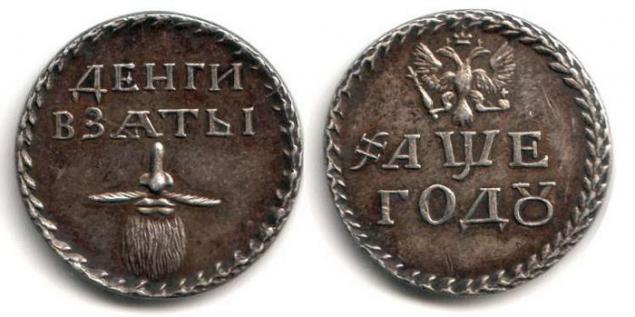
Tax ears in Tibet was temporarily introduced in the 1920s for military purposes. While the existence of this tax repeatedly mentioned in various sources, more detailed information about it is quite contradictory. Thus, according to the assertions of Chinese researchers, households paid one liang of silver from each ear of human or pet. Western researchers have reported that people who do not pay tax on the ears, punished - cutting off ears. And for the already severed ears do not pay taxes.

In the early twentieth century in the Altai Territory there a tax on rinsing of laundry in the hole - it is charged for 20 kopecks for the winter. Also, we take 2 a penny for each trip to the water with a yoke.

Tax window acted in the kingdoms of England and Scotland during the 17th and 18th centuries. It was yet another attempt to fill the treasury, which caused a total rejection of the windows of the poor people - they were forced to lay bricks, window openings. A more affluent Britons, not wanting to spoil the look of their homes, missing windows on them just dorisovyvali. Tax lasted a surprisingly long time and was canceled July 24, 1851.

Not so long ago, in 1993, in Venice, it was a tax on the shadow. Now all owners of establishments, tents and canopies that cast a shadow over the urban land, have to pay a fee to the state treasury.
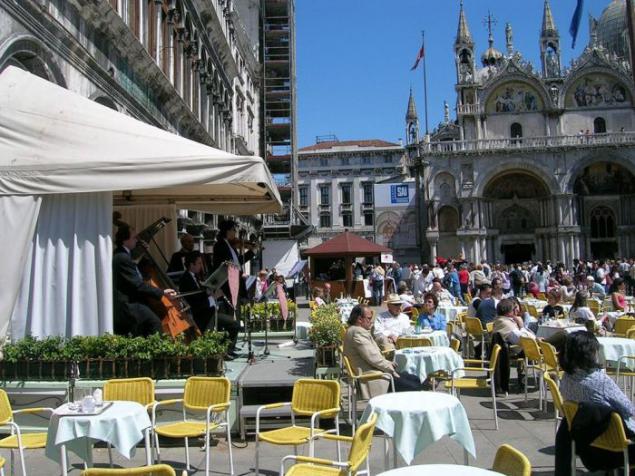
From 1784 till 1811 in the UK there safely tax on hats, brings a good income for the state. After all, in this country, every self-respecting gentleman wearing a hat. On the hat during the production of applied special signs indicating the payment of tax. With the tailors, not paying taxes, levied heavy fines. But those who forged revenue stamps, executed.

In XVI (on some versions - in the XVIII) century in the German city of Wurttemberg introduced tax on sparrows. It was believed that the bird population to live peacefully interfere. From the owner of each house required to destroy a dozen sparrows, for which he received 6 kreutzers. If a person could not provide the required number of accidents birds, he had to pay the state twice. This tax has begun a clandestine trade in dead sparrows, which, I suppose, at that time flourished.

Tax cowardice (also known as a tax for exemption from military service) was a special tax levied on people who did not want to fight for the King, which was considered cowardice. This tax was introduced in England during the reign of King Henry I (1100-1135 years) and was initially relatively low, but King John (John) Lackland raised it to 300 percent and began to remove him from all knights, even in those years when it is not it was war. It has played a significant role in the emergence of Magna Carta. Tax cowardice existed for about 300 years and was then replaced by other ways to replenish the treasury at the expense of the troops.

A fitting end of our list will be the agricultural tax on farting cows, which almost brought into New Zealand in 2003, to reach agreement with the Kyoto Protocol. The tax is going to tax cows release methane, which in New Zealand produces more than 50% of greenhouse gas emissions. As a result, and thanks to the numerous protests or simply the triumph of common sense, the Labour government left its undertaking to tax cows fart.
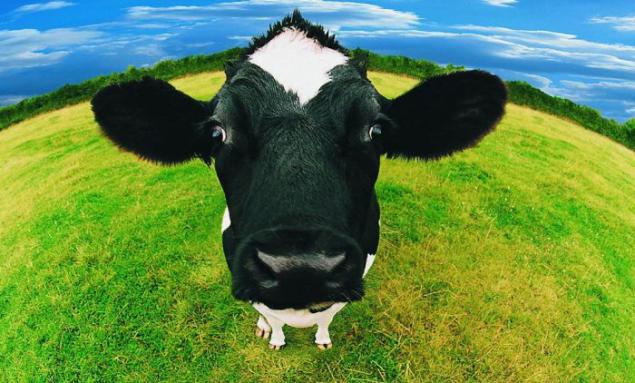

Tax on life - a dream of the tax authorities of all countries to implement in the XIV century in England. Fill up the state treasury was obliged to everyone just for the fact that he is alive. However, such a brilliant idea failed miserably - a grand rebellion quickly put an end to tax lawlessness.

In 1689, Peter the Great imposed a tax on beards. I must say, he came to it very thoroughly. The servants, merchants, officials - every single category of citizens had certain tax fee. To pay for "non-compliant fashion," could leave precious beard. Those who had no money to pay the tax, sent to prison, so they worked out a fine.

Tax ears in Tibet was temporarily introduced in the 1920s for military purposes. While the existence of this tax repeatedly mentioned in various sources, more detailed information about it is quite contradictory. Thus, according to the assertions of Chinese researchers, households paid one liang of silver from each ear of human or pet. Western researchers have reported that people who do not pay tax on the ears, punished - cutting off ears. And for the already severed ears do not pay taxes.

In the early twentieth century in the Altai Territory there a tax on rinsing of laundry in the hole - it is charged for 20 kopecks for the winter. Also, we take 2 a penny for each trip to the water with a yoke.

Tax window acted in the kingdoms of England and Scotland during the 17th and 18th centuries. It was yet another attempt to fill the treasury, which caused a total rejection of the windows of the poor people - they were forced to lay bricks, window openings. A more affluent Britons, not wanting to spoil the look of their homes, missing windows on them just dorisovyvali. Tax lasted a surprisingly long time and was canceled July 24, 1851.

Not so long ago, in 1993, in Venice, it was a tax on the shadow. Now all owners of establishments, tents and canopies that cast a shadow over the urban land, have to pay a fee to the state treasury.

From 1784 till 1811 in the UK there safely tax on hats, brings a good income for the state. After all, in this country, every self-respecting gentleman wearing a hat. On the hat during the production of applied special signs indicating the payment of tax. With the tailors, not paying taxes, levied heavy fines. But those who forged revenue stamps, executed.

In XVI (on some versions - in the XVIII) century in the German city of Wurttemberg introduced tax on sparrows. It was believed that the bird population to live peacefully interfere. From the owner of each house required to destroy a dozen sparrows, for which he received 6 kreutzers. If a person could not provide the required number of accidents birds, he had to pay the state twice. This tax has begun a clandestine trade in dead sparrows, which, I suppose, at that time flourished.

Tax cowardice (also known as a tax for exemption from military service) was a special tax levied on people who did not want to fight for the King, which was considered cowardice. This tax was introduced in England during the reign of King Henry I (1100-1135 years) and was initially relatively low, but King John (John) Lackland raised it to 300 percent and began to remove him from all knights, even in those years when it is not it was war. It has played a significant role in the emergence of Magna Carta. Tax cowardice existed for about 300 years and was then replaced by other ways to replenish the treasury at the expense of the troops.

A fitting end of our list will be the agricultural tax on farting cows, which almost brought into New Zealand in 2003, to reach agreement with the Kyoto Protocol. The tax is going to tax cows release methane, which in New Zealand produces more than 50% of greenhouse gas emissions. As a result, and thanks to the numerous protests or simply the triumph of common sense, the Labour government left its undertaking to tax cows fart.
















